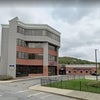Baker emphasizes life sciences center's importance
 Travis McCready, president and CEO of the Massachusetts Life Sciences Center
Travis McCready, president and CEO of the Massachusetts Life Sciences Center
Gov. Charlie Baker on Thursday made clear that he intends some type of sequel to the state's 2008 commitment of nearly $1 billion towards the life sciences sector, though the schedule, cost and other critical details about the idea remain undetermined.
At a meeting of biotech executives, Baker laid out his vision for the future of state investment in biotechnology and the life sciences, keying in on the potential to bring together engineers, scientists and data experts for new medical therapies.
The governor talked about four areas where government can work with an industry that has grown a solid base in Massachusetts.
The state can help in education and training in the sciences, bring together people from different areas of expertise, assist in advancing research and development, and "close the deal" with companies to bring investment and jobs to Massachusetts, Baker said.
Baker said the Massachusetts Life Sciences Center has proved its ability to make good investments that bring jobs to the state.
"We've gotten to the point where I believe a lot of the math associated with what the return on that investment looks like is supportable," Baker told the audience at the Massachusetts Biotechnology Council annual meeting. He said, "That's kind of where the conversation is at this point."
In 2008, under Gov. Deval Patrick, Massachusetts embarked on a $1 billion plan to buttress the life sciences industry with tax credits, investment and capital funding over the following decade.
Baker told the crowd at the Royal Sonesta hotel in Cambridge that his thinking had developed in conversations with Housing and Economic Development Secretary Jay Ash and Massachusetts Life Sciences Center President and CEO Travis McCready. The governor described his vision as "a little bit past spit-balling but not quite the final product."
Without legislative action the tax credit authority will expire at the end of 2018, according to the administration. How Baker proposes to proceed with life science investments has been a somewhat open question.
The Baker administration entered office in 2015 evaluating the role for the next chief of the Life Sciences Center before choosing McCready. In early 2016 the chair of the center's scientific advisory board, Harvey Lodish, announced plans to resign in protest of what he said was "dwindling" support for the center by the Baker administration, which McCready disputed.
While the details are still being sketched out, the governor made it clear he is working on a new phase to advance the state's role in life sciences into the future, musing on what the program might be called and discussing questions about funding amounts and duration.
"One of the conversations we're having is not just how much to put into each of those four buckets, but also: over what period of time? The first one was a 10-year proposal, but a lot of this stuff we've done with the Legislature has been in three-year and five-year chunks because things happen and times change, so we still have a bunch of questions," Baker told reporters. Asked if the initiative would be called "2.0," the governor said, "We'll probably come up with some other name for it, but I fully expect everybody else will call it that."
Ahead of Baker's remarks, Bob Coughlin, the president and CEO of the Massachusetts Biotechnology Council, told the News Service he hoped the governor would discuss "another multi-year commitment."
Coughlin said workforce development and "meeting the needs of the growth from an employer standpoint is a huge issue," and he hopes for a focus on bio-manufacturing outside the research hubs of Boston and Cambridge.
The governor spent time in his speech discussing the success of Danvers-based heart-pump manufacturer Abiomed, which he noted has expanded to Japan and Germany. Abiomed and Baker on Thursday celebrated a recent expansion that more than doubled the size of its Danvers facility to 160,000 square feet, adding "new research and manufacturing capabilities, along with the new Heart Recovery Institute for clinical education."
The governor also talked approvingly about a Massachusetts Life Sciences grant that supported science education at a middle school in Brookfield.
The 2008 law included $500 million in capital, up to $250 million in tax credit authority - with awards capped at $25 million per year - and an anticipated $250 million for other expenditures by the Massachusetts Life Sciences Center, according to the Baker administration.
Through Dec. 31, the Life Sciences Center has committed or spent $85.8 million in investments, a net of $102 million in tax credits - minus claw-backs - and $450 million in capital, according to the Baker administration and the center. Since its 2007 founding, the Life Sciences Center has spent a total of $26 million on its own operations, according to the center.
Baker has placed emphasis on workforce training in a variety of industries and also demonstrated a willingness to support a successful business willing to expand in Massachusetts when the state offered an incentive package to General Electric to build its headquarters in Boston.
The life sciences sector has enjoyed success over the years, and the administration now estimates 113,000 people are employed in biopharma and medical technology fields in Massachusetts, citing MassBio's calculations. The state's total non-farm employment was 3.53 million in December 2015, rising to 3.58 million in December 2016, according to the Office of Labor and Workforce Development.









0 Comments